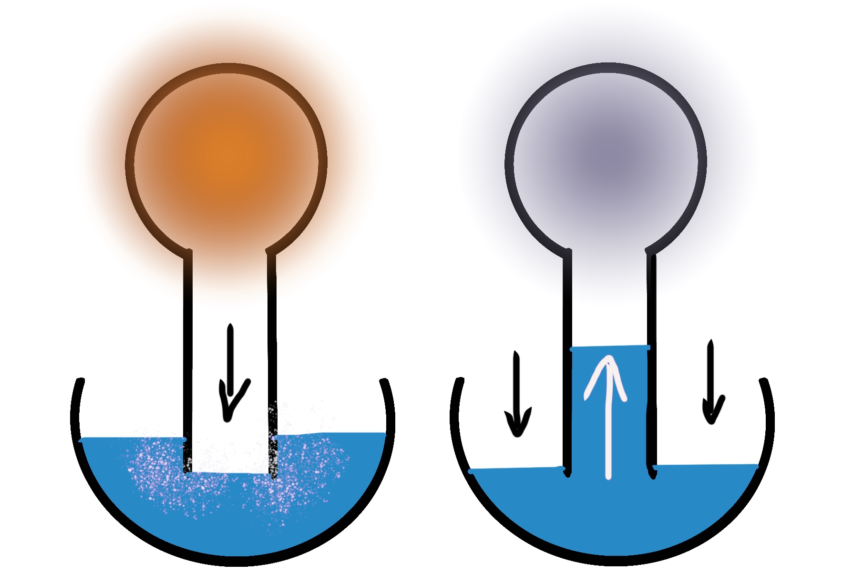In The Line, Matt Gurney reluctantly agrees that at least some of what Deputy Prime Minister Chrystia Freeland covered in her recent speech to the Brookings Institute in Washington, DC was logical, sensible and well-crafted. What he finds mind-croggling is the chasm between what Freeland talks about and what the government she’s deputy leader of is actually doing:

Screencap from the CPAC video of Chrystia Freeland’s speech this week.
Deputy Prime Minister Chrystia Freeland went to Washington this week, to give a speech at the Brookings Institution. It is a very interesting speech. Truly — it’s interesting. You should read it.
Is it a good speech, though?
In some ways, yes. You could even go so far as to say it’s a very good speech. Freeland lays out a stark but convincing critique of more than 30 years of Western foreign policy and economic assumptions, and offers some worthwhile Canadian initiatives that seek to address what we got wrong. We were wrong to believe that history had ended, Freeland said, and must now accept that we’re going to have to fight for the world we want to live in, and to win hearts and minds. We can’t just sit around and wait for the arc of history to bend things our way — we must work consciously and deliberately with our allies to make the Western alliance stronger, richer and safer, better able to withstand the hostility of our enemies and win over the undecideds of the world.
That’s the good stuff. There is, however, some bad news.
[…]
Freeland’s speech is full of little examples like this, where the value of her ideas collides bodily with the reality of her government’s competency problems. She is saying the right things. She is also saying the things that her government could already have been doing, but either hasn’t wanted to or isn’t capable of actually pulling off.
So we’re going to spend some domestic political capital to help draw the democratic allies together, eh? That sounds great. But what if they want to sell us some cheese or fancy butter? Are we going to spend some domestic political capital on that, or nah? Freeland says we must “deepen and expand” NATO and our other alliances, which also sounds super, but we’re already seeing signs that our allies are increasingly cutting us out of the loop and forming new Canada-free forums because we simply aren’t interested in deepening or expanding anything, and don’t add anything but an extra meal tab when we show up for the family photo. Freeland says that adapting to our changing world order is “one of our most urgent tasks”. Okay! Again, that sounds fantastic, but are we going to do a defence policy review? A foreign policy review? Are we going to spearhead any new initiatives? Are we going to build out our military, expand our diplomatic corps, and invoke that famous convening power in a way that tangibly helps? Or is this one of those things where the urgency is in the saying aloud before a well-heeled crowd, but not so much in the doing?
Indeed, this goes well beyond what I’d call this government’s meta-failure: a strong preference for saying the right things in place of doing the right things, but still expecting full credit for said things, as if they’d actually pulled it off. That problem is bad enough, but on top of that is layered the very real concerns I and many others have about our state capacity. Even if we chose to spend political capital to get things done, and then tried really hard to succeed, could we? I know it’s a bit of a deep cut now, but I wonder if everything Freeland wants to do will be charitably deemed “underway with challenges” by the time the war in Europe enters its second year, or fifth, or tenth.
There’s a line in Freeland’s speech that really jumped out at me. Early on, she’s talking about the assumptions many of us in the West had about the “end of history” — the proclaimed permanent triumph of democracy and capitalism after the end of the Cold War. “It is easy to mock the hubris and the naiveté which animated that era”, she said.
She’s right! Here’s the thing, though: it’s equally easy to mock the hubris and naiveté of a Canadian deputy PM who flies to Washington to lay out a vision of allied solidarity and hard work that her own government has yet to demonstrate the slightest interest in putting into action. Her government’s own record undercuts her (truly) very fine words. Canada could be leading by example here. Instead, Freeland is giving a speech about the things we ought to be doing, and could already be doing, but aren’t. The D.C. audience may not know enough of her government’s record to mock the hubris and naiveté; we Canadians have no such luxury of ignorance.
I’ll say this for Freeland: I believe she is sincere. I believe she means what she says, I believe she has thought about these issues long and hard, and despite my previously acknowledged quibbles, it is a damn good speech. The problem, in this case, isn’t the message, or even the messenger. The problem is who the messenger works for.





